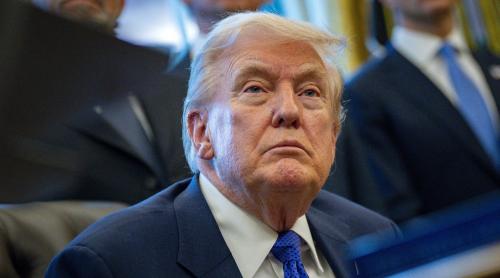
The election of Barak Obama as President of the U.S. is less important at this time. It is more important for us to find out the identity of this new America and the kind of change that it wants.
It is the America of a middle class in crisis that is scared by the insecurity brought with the wave of migration and aims to supply power from its internal demographic resources by taking into account the lower classes. It prefers the emancipation of the marginalized classes inside the nation to the migration. They refuse to see the inequality as a mean to progress. Ironically, the Americans need a left-oriented political strategy in order to be able to remain a right-oriented society. They are an example of a reflex reaction of the dying empires.
The main feature of any empire is the integrator universalistic message. The “American dream” was such a message. It said that the lack of a common origin does not prevent people with different identities to build a common future. At planetary level, it meant that the inhabitants of the dominant periphery would have access, in exchange for an imperial fee, to the status of welfare of the dominant center. For a democratic empire as the U.S., the main characteristic of this fee was that most of it meant brains and strong arms obtained through the voluntary mechanism of migration. This was the non-national and non-identity message that brought power to America. At the same time, however, to give coherence to the center as a landmark for the alignment of the periphery, it was necessary that the promise of the inclusion of the latter in the sphere of imperial wealth to be accompanied by discrimination and exclusion for the case of the other. Although able to become teachers, doctors, officers, bank or corporation directors, the supreme leading board, that is the U.S. presidency, was prohibited to those who were not white and Christian, preferably Protestant and Anglo-Saxon. The white conception regarding the Promised Land was the official dream. The dream of Martin Luther King was subordinated and subversive.
The larger the U.S. power was, the greater the reaction against it was. Forced to be both the guarantor of peace in its empire and its defender outside it, America spent more and more on security and less on development. Challenged and attacked from outside, it had to block itself behind the walls of concrete, iron and visas. In a globalized world, where its statute of single Superpower was questioned, it instinctually gave up on universalism in order to become and look more like a European nation. Nationalism is the final state of imperialism.
“Our past can be different, but we all have the same future!”. This was the message of the elected President Barack Obama in Chicago during the night of his election. However, the message wasn’t sent to the world, to the empire, but to the citadel, to the American nation. “We are Americans!”, they all repeated. Not so different from the moment of the USSR hit: “To resist like the Russians we should not be Soviets!”
They became a nation when the European nations were globalizing, so the Americans cannot afford any other internal discriminations and no longer need them either. The imperial integration should be replaced by the national integration. All the forces of the nation should be prepared. From now on, the African-Americans, the Hispanic and so on will not have any formal right to cry for equality, but they have to transfer the energies blocked by the old frustrations and protests in the “united and indivisible” America.
There you have the change called Obama! Europe obtains a partner closer to its tastes; more complex and thus more nuanced and multilateral. Instead, through obama-therapy, the U.S. ceases being the cultural child of Europe and receives African-European origins. This will bring to the transatlantic relationship the melancholy that must have existed when the barbarians became the emperors of Rome. With no children left to take care of, the Europeans have an additional reason to defend their needs together.
Citește pe Antena3.ro

















